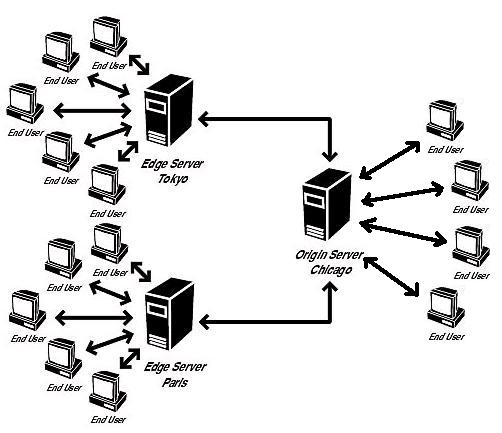 Back in 2008 I wrote a lot about the kerfuffle that surrounded Google’s “OpenEdge” program, which was seen as an affront to net neutrality. Here’s a couple of the better posts on the topic:
Back in 2008 I wrote a lot about the kerfuffle that surrounded Google’s “OpenEdge” program, which was seen as an affront to net neutrality. Here’s a couple of the better posts on the topic:
Google’s OpenEdge Could Dramatically Reduce Google’s Impact on the Internet’s Core
That debate seems pretty similar to today’s, in that the issue was largely misunderstood, overreactions were plentiful, and semi-socialist nonsense about the Net belonging to “the people” was momentarily viewed as reasonable.
I hope that this blow-up passes just like the 2008 controversy did.
This debate is different in terms of network architecture as Google likely intends to pay Verizon for prioritization of its services over others, making the network decidedly non-neutral. But I think that’s a good thing.
Why? Because in 2008, Google’s dollars flowed into edge caching servers, not into wired networks themselves. While this relieved of some traffic near the core as I’ve outlined in the post linked to above, it didn’t give wired network providers any more resources to build more robust networks.
Thankfully, the “Voogle” deal is different. In this case, dollars will flow directly to network building companies, who will hopefully use that money to build out capacity. If other companies choose to join Google and live life in the fast lane, all the better. The more content providers pay the carriers, the easier it becomes for the carriers to lower their prices to consumers and engage in a good ol’ fashioned price war. Either that, or prices will remain stable, but service quality will go up thanks to additional income for capital investment.
Of course, carriers (being the spawn of Satan according to pundits like Jeff Jarvis) could always decide to use the extra cash to fly around on corporate jets, smoke cigars, and laugh at poor people, but I think there’s still enough competition in the market to encourage them to invest a few of the dollars from this new revenue stream into 4G, LTE, W-Max and other next generation technologies.
If this agreement becomes the way things are done over the next few years, it’ll mean the big guys will have an advantage, but so what? Edge-caching already gives big guys an advantage in the wired world (not to mention their multi-acre server farms) and that hasn’t destroyed Internet civilization as we know it. If anything, it’s made the Internet better for all of us. It’s likely that a non-neutral wireless system will do the same thing.

 The Technology Liberation Front is the tech policy blog dedicated to keeping politicians' hands off the 'net and everything else related to technology.
The Technology Liberation Front is the tech policy blog dedicated to keeping politicians' hands off the 'net and everything else related to technology.